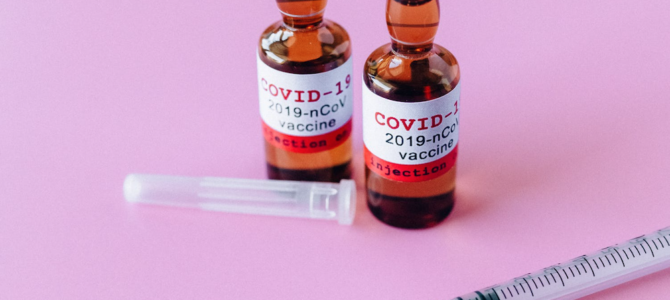
It’s surprising how unsurprising it is when white evangelical David French takes an opportunity to swing at other white evangelicals, as he did once again over the weekend with an article asking why “so many white Evangelicals [are] reluctant to consider the health of their community.”
The article is about vaccines, of course, but it’s mostly about how Christians who are even hesitant to receive one have a “spiritual problem.” Before anyone accuses me of cherry-picking from French’s article to manufacture outrage, note in French’s own words what he describes as his article’s one takeaway: “Evangelical vaccine hesitancy is both an information problem and a spiritual problem.” It doesn’t get much clearer than that.
The Dispatch senior editor makes his case by saying that although the hesitancy is diminishing, there’s bad news: Vaccine “hesitancy is so profound in white Evangelical communities that it could disrupt the quest for herd immunity.” It’s curious that French would make such a bold claim immediately after saying that “we don’t really know the magic percentage needed for herd immunity.” Nonetheless, he directs us to polling to show which Americans are most likely to resist vaccination.
According to data from YouGov and Pew Research, when related to political affiliation, vaccine resistance is most pronounced among white Republicans, and the same goes for white evangelicals over other religious groups. Here French has a blind spot, which he broadcasts through a YouGov graphic he includes to show the “jolting” partisan breakdown:

While one takeaway from the graph is that Republicans are the most likely to say they will “never” get vaccinated against COVID-19, just below that information, you’ll see that white Americans with a high school diploma or less education are almost just as likely never to get the vaccine. Anyone can look at polling data and conclude, based on their own ideological biases, that Republicans are the biggest culprits of vaccine refusal, but an astute observer will ask what other forces are at work.
One explanation for vaccine refusal, considering that it’s highest among Republicans and less-educated Americans, might have something to do with the breakdown of our institutions at the hands of leftist opportunists and the propensity of our country’s media arbiters to lie.
For a whole year, the elitist ruling class, the same one scolding Americans to get the vaccine, have given us every reason not to trust a word they say. They lied about masks when it was convenient, use children as political pawns, change their tone drastically depending on who controls the executive, issued oppressive lockdown decrees that they promptly violated, and are now even admitting they don’t follow the science.
Concluding that working-class people whose lives have been destroyed most by pandemic restrictions are rightfully the least likely to trust the ruling class makes more sense than a reductionist look at the data to conclude we could all have herd immunity if it weren’t for those Trump-loving rubes.
There’s More to Life Than Living
This oversight in French’s evaluation is important because he makes the same mistake when assessing the percentage of evangelicals who are hesitant to vaccinate. He looks at the data only long enough to see the percentage and then neglects something important. French pens:
Only 54 percent of white Evangelicals will ‘definitely’ or ‘probably’ take the vaccine. The next-closest numbers belonged to black Protestants and religiously unaffiliated Americans at 64 percent. By contrast 77 percent of Catholics will take the vaccine and a whopping 90 percent of atheists.
In contrasting atheists with white evangelicals, a category in which French belongs despite his endless attempts to fire on them, French leaves out a pivotal bit of context. Of course atheists would be in a tear to get the vaccine. When you believe this life is everything, death is likely the worst thing you can imagine.
In this way, French’s article differs little from an ignorant piece of anti-religion propaganda peddled by The New York Times originally titled, “The Road to Coronavirus Hell Was Paved by Evangelicals” in which the author says, “This denial of science and critical thinking among religious ultraconservatives now haunts the American response to the coronavirus crisis.” French’s article conveys the same temporal terror that saturates the fear porn peddled by politicos and the sycophants at The New York Times to assure us Christians will be the death of us all.
Righteousness Apparently Means Trusting Institutions
This leads French to what he says is the worst part: “[W]hite evangelicals are the least likely to say they should consider the health effects on their community when making a decision to be vaccinated.”
To French’s credit, he is charitable when he reminds readers that Christians are not all crazy hoaxers who believe everything they read on fringe websites. Instead, he says, level-headed Christians are simply believing information from sources they think are reliable and have their best interests in mind. To that end, French advises that vaccine disciples such as himself have a burden to persuade gently:
[T]he entry into the discussion isn’t necessarily, ‘Mom, you should trust the CDC.’ It’s, ‘Mom, I love you. Trust me. Here’s why I’m getting the vaccine. Here’s why my wife is getting the vaccine.’ That’s the conversation that can ultimately bring you to the facts about the virus and the specific reasons why you’re trusting the guidance of the CDC, or of Dr. Francis Collins, the evangelical who heads the National Institutes of Health.
French’s fatal flaw here is assuming his own sources to be infallible despite troves of evidence to the contrary. Despite warning against condescension, French hops atop his elitist soapbox to preach the gospel of the CDC and the NIH (home of political hack Anthony Fauci), two of the same institutions whose lack of transparency and outright dishonesty contributed to the religious right’s skepticism of the vaccine in the first place.
“[Y]ou can’t berate them into trusting institutions they may perceive to be distant, elitist, and hostile,” French says. But it isn’t just a perception, and those who pretend it is surrender their power of persuasion.
Your Disagreement Is a Spiritual Problem
Those people who continue to be cynical of the CDC guidelines, however, fall into the camp of those French considers obstinate Christians with a spiritual problem.
“[M]illions of Christians have confused selfish defiance with faith and moral courage,” French says, saying many people believe it’s a demonstration of fearlessness to be maskless in “appropriate setting,” which he defines as “indoors or in close proximity to others.” He continues:
Yet it’s well-established that the primary purpose of wearing the mask is to protect those around you more than it is to protect yourselves. When I’m standing next to an unmasked family in church, I’m not thinking they’re brave or bold. I’m seeing instead a tangible disregard for the health and safety of those around them. … [T]oo many Christians are adopting a posture that declares ‘Don’t tell me what to do’ far more than it asks ‘How can I serve you?’
What French and others need to understand is that Christians who disagree with them are not necessarily adopting a “Don’t tell me what to do” or survival-of-the-fittest attitude. We all have people we love and want to protect. While French and those like him are free to adopt every line the CDC issues, blanket guidelines that far too often ignore data and nuances leave room for well-informed and well-meaning Christians to disagree about mask-wearing and vaccinating.
Does the young person who recently recovered from the virus and now possesses the antibodies, for instance, immediately need to mask up or commit to getting the vaccine in order to actually “love her neighbor”? Or do such people only need to do those performative things so David French knows they’re loving their neighbor?
We have all been affected differently by the lies we’ve consumed. We’ve all made sacrifices this year, watched our kids get relegated to Zoom school, and gathered with our churches only for the fearful services not to resemble what God intended for his body at all. Our personal experiences and thus our predispositions, however, have varied. We all assign different weights to health guidelines and political diktats and freedom and personal responsibility and human contact and so on, all within accordance to our faith.
Christians are sinful and selfish. But faithful believers are doing our best, without blindly following government agencies, to make sense of the information we’ve consumed and to make choices we believe are in the best interests of ourselves and those around us.
Living our lives according to the most terrified voice in the room or to the gospel of political expediency doesn’t equal Christlikeness. Human beings have lots of spiritual problems, but let’s stop assuming a Christian’s hesitancy to vaccinate is necessarily one of them.









